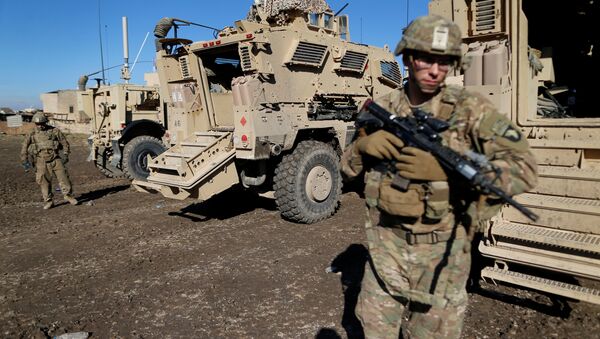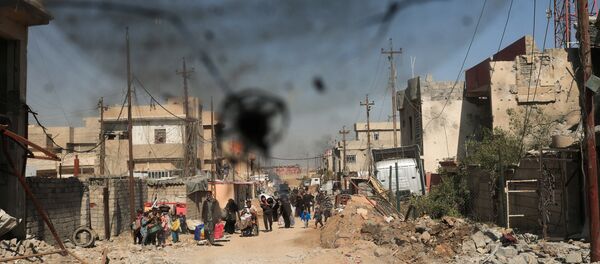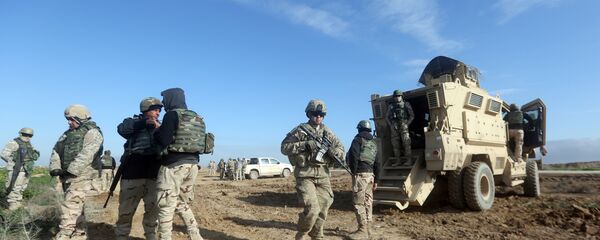Local residents said more than 100 civilians, including women and children, were killed on March 17, the result of a massive strike by the US-led coalition on the heavily populated district of al-Jadida, which some reported had previously been used as a sniper position by Daesh fighters.
"The excuses and the justifications to such bombing are not convincing anyone," Alberto Garcia Watson, a former senior correspondent for HispanTV, told Radio Sputnik's Brian Becker.
"Even the United Nations are totally stunned by this strike and by the amounts of casualties."
According to Watson, one of the reasons why, in violation of international law, the US government is not taking adequate protective measures as it helps Iraqi forces battle Daesh, is that there is no accountability for certain UN member states.
"It seems like the United Nations has resolutions and laws and the Geneva Convention for certain amount of countries, but other countries, like the United States and Israel, don't need to apply this kind of international legislation," he said during the Loud & Clear broadcast.
"Nothing happens when they take these kinds of measures. We saw it in Korea, we saw it in Vietnam, we see it now in Iraq."
Watson recalled another "massacre," by the US-led coalition in Syria, just one day before the bombing of al-Jadida. The airstrike hit a mosque in the northern province of Aleppo, leaving 46 people dead and more than 100 injured.
According to Watson, there is no real necessity for the US to take to such measures and call it "liberation," especially "in areas where they haven't been invited."
"The US invites itself in wars, commits these massacres and gets away without any punishment," he said.
"This is all about the natural resources. If Iraq did not have oil, crude oil or gas or any kind of natural resource, the United States would not have five presidents involved in bombing and destroying their country."
He recalled how the UN didn't hesitate to condemn Russia when it was bombing terrorists in Aleppo. But when the US causes catastrophic levels of civilian casualties, they call it "collateral damage."
The coalition has said they carried out the attack on March 17 "at the request of the Iraqi security forces," and has launched a formal investigation into reports of casualties.




